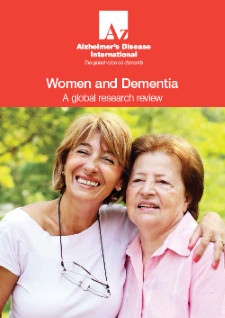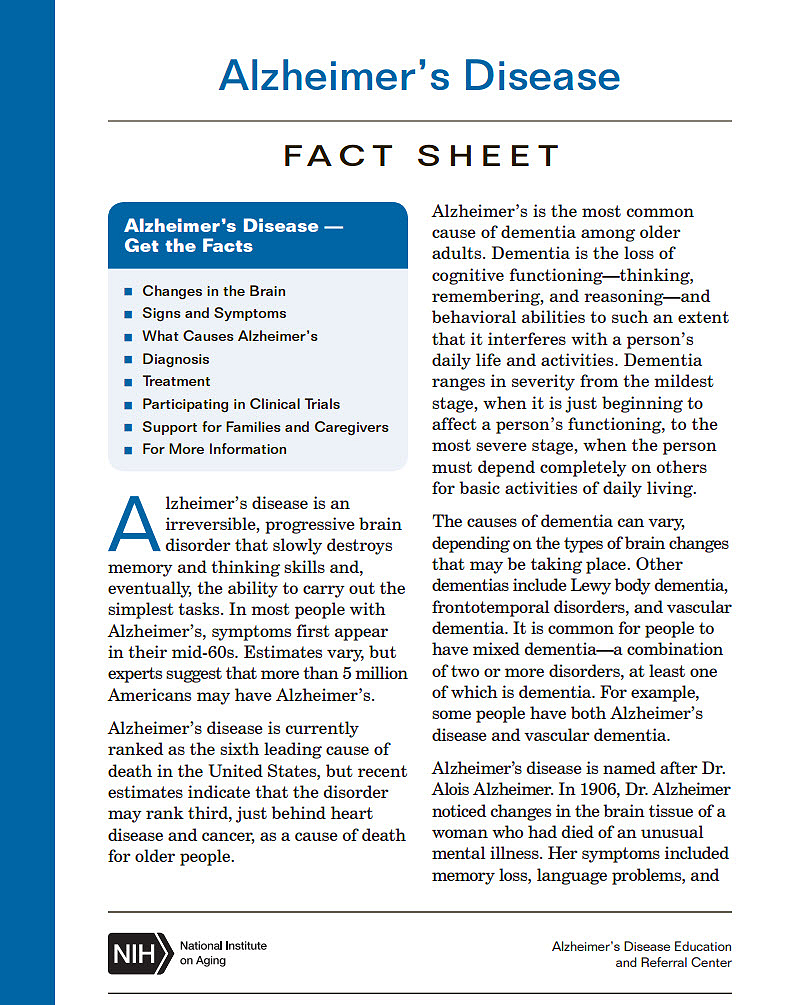(Alzheimer’s Disease International) The report,Women and Dementia: A Global Research Review, from Alzheimer’s Disease International, discusses the main issues affecting women in relation to dementia from an international perspective. The report examines the effect of gender on three specific groups: women living with dementia; women caring for people with dementia in a professional caring role; women undertaking an informal caregiving role for someone with dementia.
The report also focuses on cross-cutting issues, including factors affecting women in low and middle income countries (LMICs); family structures and kinship; and the effects of migration.
Key Findings
- Across all regions of the world, dementia disproportionately affects women.
- More women live with dementia than men. The prevalence is higher for women than for men; women are more at risk of developing dementia and the symptoms they live with are more severe.
- Women provide a substantial proportion of informal care to people with dementia, with around two thirds of primary caregivers overall being women.
- This figure is significantly higher in LMICs, areas which will account for 71% of the global prevalence of dementia by 2050.
- The formal care workforce is predominantly female, providing the majority of health and social care in the community as well as in hospitals and care homes.
- There is currently very little research focusing on the gender issues of living with, or caring for, someone with dementia and on the long-term impact of dementia on women as family and formal caregivers.
Recommendations
The report recommends that:
- All countries need to understand the current and predicted prevalence and acknowledge that dementia disproportionately affects women. Accordingly, policy makers should review what support is currently available and what is required to meet future needs.
- There is also a need for skilled care competencies for health and care staff and professionals working with people living with dementia with complex needs and co-morbidities.
- In all regions people should be able to access appropriate information and support in place, enabling women across the world to continue to provide care, and to feel cared for themselves.
Read the Report
- Women and Dementia: A global research review (PDF, 53 pages)
- Women and Dementia: A global research review - Summary sheet (PDF, 2 pages)
About Alzheimer’s Disease International
Alzheimer’s Disease International (ADI) believes that the key to winning the fight against dementia lies in a unique combination of Global Solutions and local knowledge. As such, it works locally, by empowering Alzheimer associations to promote and offer care and support for people with dementia and their carers, while working globally to focus attention on dementia. Our board is composed of people from around the world, and our staff team is based in London.
ADI is the international federation of Alzheimer associations around the world, in official relations with the World Health Organization. Each member is the Alzheimer association in their country who support people with dementia and their families. ADI’s vision is an improved quality of life for people with dementia and their families throughout the world.

http://www.alz.co.uk/women-and-dementia
COPYRIGHT © ALZHEIMER’S DISEASE INTERNATIONAL









